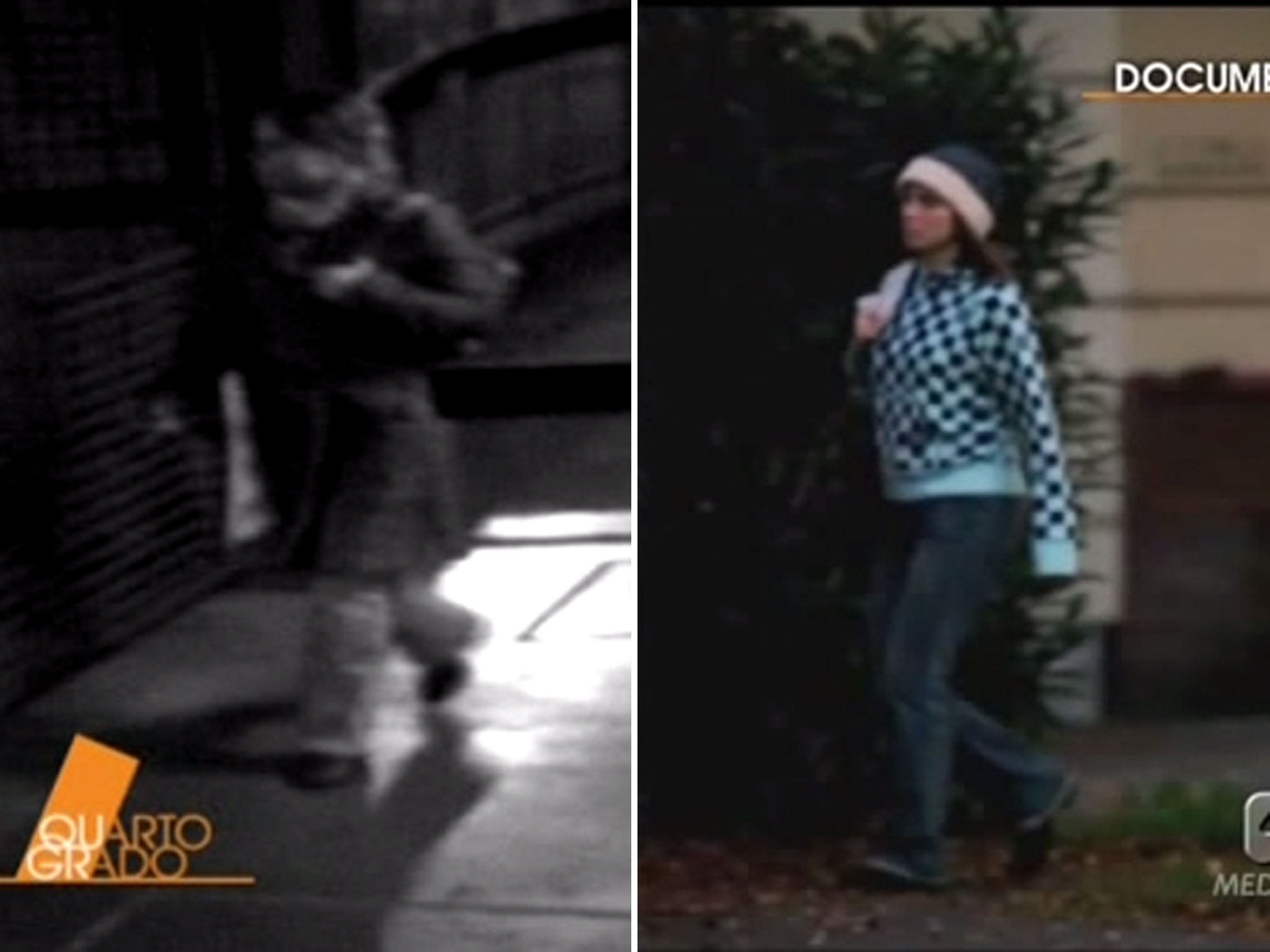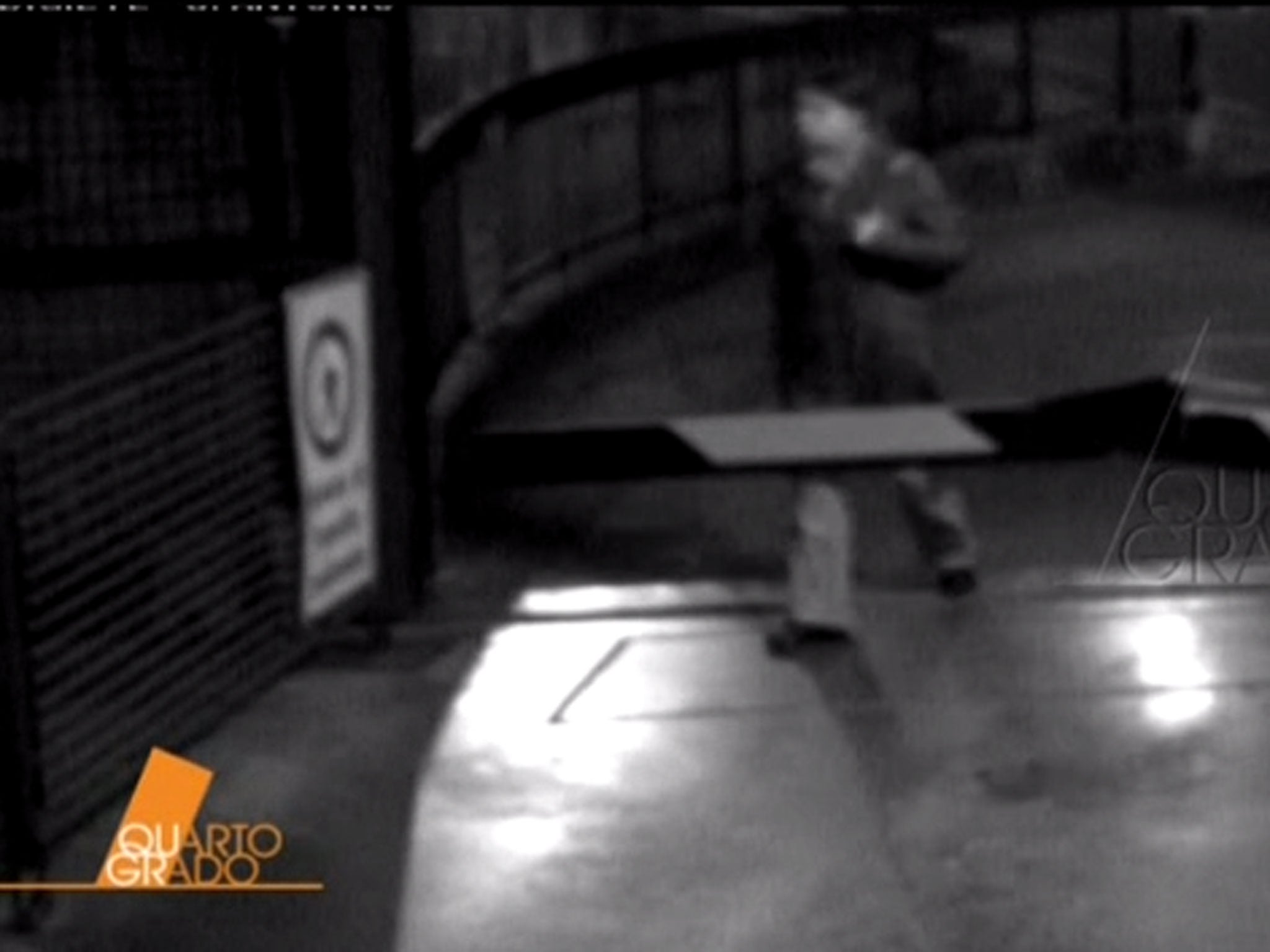Amanda Knox alibi challenged after CCTV footage released from night of Meredith Kercher’s murder
Grainy footage may show Knox at home she shared with the British student on night of killing - despite claims she was with boyfriend Raffaele Sollecito

Your support helps us to tell the story
From reproductive rights to climate change to Big Tech, The Independent is on the ground when the story is developing. Whether it's investigating the financials of Elon Musk's pro-Trump PAC or producing our latest documentary, 'The A Word', which shines a light on the American women fighting for reproductive rights, we know how important it is to parse out the facts from the messaging.
At such a critical moment in US history, we need reporters on the ground. Your donation allows us to keep sending journalists to speak to both sides of the story.
The Independent is trusted by Americans across the entire political spectrum. And unlike many other quality news outlets, we choose not to lock Americans out of our reporting and analysis with paywalls. We believe quality journalism should be available to everyone, paid for by those who can afford it.
Your support makes all the difference.Amanda Knox’s alibi for the murder of the British student Meredith Kercher could now be in doubt after an Italian TV programme released CCTV footage which appears to show her on the night of the killing six and a half years ago.
The American, who was studying in the university city of Perugia at the time, has consistently denied the murder and said there is no evidence placing her at the home she then shared with Ms Kercher.
Yet black and white video footage has now emerged which the investigative programme Quarto Grado said was taken from a nearby security camera and time-stamped 8.53pm on 1 November 2007 - the night of the murder.
The video seems to show a woman wearing jeans and a long coat, similar to those Knox was pictured in during the days following Ms Kercher’s death, in the car park outside the students’ house.
According to The Times, the Italian programme explained that the woman appears on the video just two minutes after Ms Kercher herself, and included a close comparison between the ways she and Knox walk.
Knox has consistently claimed that on the night of the murder she had been staying with her then-boyfriend Raffaele Sollecito, who has also been convicted of the killing by an Italian court.
The pair were found guilty in a joint trial in 2009, acquitted on appeal in 2011 and then once again found guilty in January this year. They are now appealing for a third and final trial, though Knox has refused to return to Italy to attend any more court hearings.
Latza Nadeau, an expert on the case and the author of a book inspired by its events, told The Times that while the CCTV footage would clearly not help Knox’s defence case if it is proven to be her, it would not necessarily help the prosecution either.
She told the newspaper: “If the prosecution shows someone like Amanda Knox walking away from the crime scene it's not helpful. For the defence, if there is a video of her anywhere near the house it's not helpful to them because her alibi is that she was at Raffaele's house.”
Last week Knox claimed there was “no logic” to the appeal court in Florence’s decision to reinstate her conviction for the murder.
It issued a 337-page document saying it was Knox who delivered the fatal knife blow to her 21-year-old roommate, adding that her wounds indicate multiple aggressors and that the two exchange students fought over money on the night of Ms Kercher’s death.

In its explanation the appeal court said that a third person convicted of the murder, Rudy Hermann Guede, did not act alone, and cited the nature of the victim's wounds, as well as finger imprints on her body indicating she had been restrained.
The court said it had evidence of a fallout between the two roommates, including statements by Guede under police questioning that Ms Kercher had accused Knox of taking money from her room.
The document said: “It is a matter of fact that at a certain point in the evening events accelerated; the English girl was attacked by Amanda Marie Knox, by Raffaele Sollecito, who was backing up his girlfriend, and by Rudy Hermann Guede, and constrained within her own room.”
It ruled out a previous explanation for motive – a sex game gone wrong – because it was not in Ms Kercher's character.
Guede was convicted in a separate trial of sexually assaulting and stabbing Ms Kercher. His 16-year sentence - reduced on appeal from 30 years - was upheld in 2010 by Italy's highest court, which also said he had not acted alone.
Additional reporting by PA